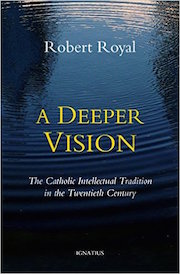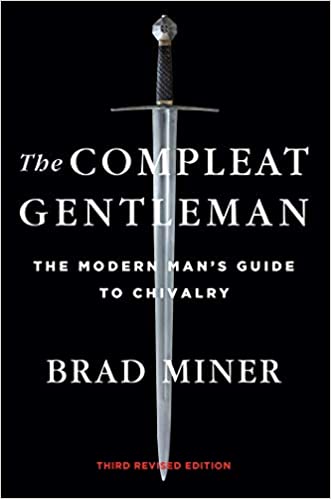Back in the heady days of the eugenics movement, before Hitler smudged its reputation for a time, Julian Huxley blamed “the ascetical element in Christianity” for resistance to forced sterilization of citizens deemed unworthy to have children.
In doing so, Huxley provided us with one of the minor consolations of ideology. For if we set aside the toxicity, ideology really is a funny thing. It can’t help but be so, when you try to fit the wide world into a little grid.
G. K. Chesterton said Huxley made “an exceedingly funny joke.” Since asceticism implies “the rejection of some earthly joys and jollities,” Huxley must have believed sterilization of other people to be among those innocent delights. “Because we are virtuous,” wrote Chesterton, “scientists can have no more cakes and ale and castrating expeditions among their fellow citizens.” Thus do we dour Malvolios “frown upon the gayer and more frivolous side of life; denying to the medical profession its natural form of merriment.”
Such humor is with us still. LifeSiteNews reports a decree by Thomas Lakaszuk, the Earl of Education for the Province of Alberta. Milord Lakaszuk belongs to the “Progressive Conservative” party, a gag in itself. All schools, including private, religious, and home schools, will be forbidden to teach that homosexual acts are unnatural or immoral.
This decree, says a spokeswoman, will ensure that students learn to respect “diversity.” Try to imagine: columns of Canucks, hockey sticks over their shoulders, Canadian Goose-stepping, turning neither to the right nor the left, crying, “Diversity, diversity, divert not from diversity!”
But there’s more. The Earl justifies the decree referring to The Charter of Rights. For those ignorant of Canadian history, in 1215, at Moose Jaw, Canadian barons compelled the King to take over schools in the realm, to curtail freedom of speech, to subject the Church to oversight by royal stewards, and to overrule local liberties in the name of national unity, in return for second-rate hospitals and a lapdog press.
Not that Canadians are the only humorists. We also leave comedy writers in despair. American congressman and senators are known as “lawmakers,” though they might as well be “walrus painters” or “unicorn hunters.” For they do not pass laws. They pass the authority to pass laws.
They do so by means of bills subjected to severe scrutiny. These bills are typically written by lobbyists, jobbers, and undergraduates with at least B averages, and pass through subcommittees and committees without being read, until they arrive at the World’s Greatest Deliberative Body, the Senate.

The Tsars come out at night. (Ivan the Terrible by Oleg Shuplyak)
Senators can tell what is in a bill without reading it. Typically, they hold the bill against the forehead – or, if it’s more than fifty pounds, a pageboy does it; they shut their eyes, mutter a favorite slogan, and see Danger to the Body Politic, or Absolute Necessity in These Times of Crisis.
These aren’t so much laws as laterals. The Tsars come out at night, and act with all authority in heaven and on earth. The Tsarina of Health, Katerina Sebelius, issues her edict, that when any man shall hear the federal trumpet, he shall fall down and worship the golden image the Tsarina has set up – and pass out free Fornication Kits to all.
Thus shall be thwarted the function of healthy reproductive organs used in a reproductive act. Or when a healthy young human organism is prevented from settling in the womb to grow; or the kicking fetus is torn to pieces or roasted in salt. This is reproductive health.
The United States Army – the Army! – is now requiring its men to experience simulated pregnancy. This will help them understand their gravid fellows, and may even come in handy for tricking enemy combatants. “No mas!” they will shout, holding their bellies. This is called “empathy.”
So also when the Tsar decrees that fifty naked men will be herded into a small shower and never care one little bit whether the man next to them is gazing where he shouldn’t; or that the same fifty men will eat and sleep in a cubby the size of a boxcar and not feel one little bit odd about odd fellows dreaming about fellows: that too is “empathy.”
And a person who believes that there shouldn’t be all these Tsars and Tsarinas? That a man’s home – and that means a woman’s home too – is his castle? That freedom of religion should not be abridged? That a private school is a private school? That the reproductive organs tend to result in reproduction? That moral directives that prevailed until five minutes ago ought to be respected? That the family is the most important guard against ambitions of the state and its armies of petty would-be Ivans and Katerinas?
Or that men who risk death for us ought to have some little say about the conditions of their work? That boys ought to be brought up as boys, as all cultures have done, notwithstanding all their fine variations, and girls as girls? That a male cannot marry a male, as a matter of obvious biological fact, and that therefore the State has no business arrogating to itself the power to contradict logic and nature?
That person is a “theocrat.”
As they say, you couldn’t make this stuff up.















